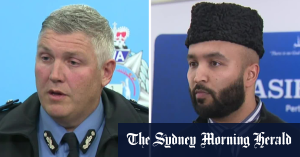Researchers at Texas Children’s Cancer Center and the Center for Cell and Gene Therapy at Baylor College of Medicine, Texas Children’s Hospital and Houston Methodist conducted a phase I clinical trial of a novel immunotherapy for high-risk sarcomas. The therapy uses chimeric antigen receptor (CAR) T cells engineered to target the HER2 protein overexpressed on sarcoma cells. The HEROS 2.0 trial showed that this approach is safe and has clinical benefits. Dr. Meenakshi Hegde, the lead author, stated that while CAR T cell therapy has been successful in leukemia and lymphoma, using it for solid tumors has been challenging. The results of this trial suggest progress in harnessing CAR T cells for sarcomas.
In a previous study, the HEROS trial, researchers found that CAR T cells targeting HER2+ tumor cells had a good safety profile, but limited clinical benefits due to poor CAR T expansion and persistence. In HEROS 2.0, researchers added successive HER2-CAR T cell infusions after lymphodepletion to improve expansion and persistence of CAR T cells. By increasing the number of allowable infusions and exposure time of CAR T cells, they aimed to enhance the antitumor effect. The study showed that CAR T expansion and persistence improved with lymphodepletion and repeat cycles of treatment, leading to positive results in the treated patients.
Thirteen patients were enrolled in the HEROS 2.0 trial, with seven receiving multiple CAR T infusions. CAR T expansion was observed in 19 out of 21 infusions, and clinical benefit was seen in 50% of the patients. A remarkable response was documented in a patient with metastatic rhabdomyosarcoma, who remains cancer-free after more than five years. Nine patients developed low-grade cytokine release syndrome (CRS), a common side effect of CAR T treatment, while two experienced dose-limiting CRS, leading to the end of dose-escalation. Dr. Hegde mentioned that further studies are ongoing to improve CAR T cell engineering for better efficacy and safety in delivering higher doses for increased antitumor activity.
Dr. Nabil Ahmed, the senior author, highlighted the importance of the crosstalk between research and clinical application in refining first-in-child studies like HEROS 2.0. The ongoing HEROS 3.0 trial aims to evaluate the safety of combining HER2-CAR T cells with chemotherapy and an immune checkpoint inhibitor drug to further enhance the therapeutic effects. The researchers at Texas Children’s Cancer Center and Houston Methodist Hospital are optimistic about the potential of CAR T cell therapy for sarcomas and continue to explore ways to optimize its effectiveness and safety for patients.





